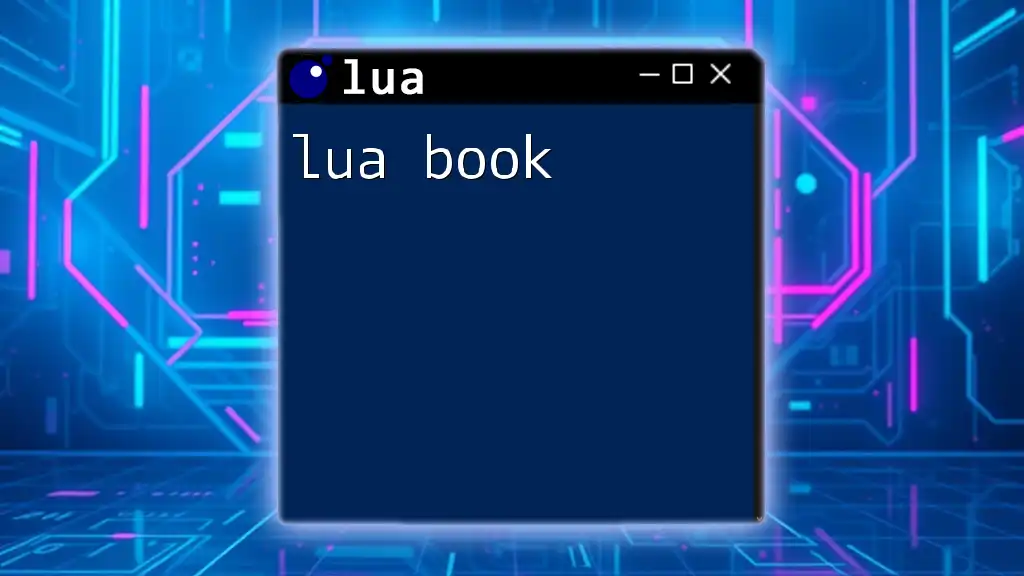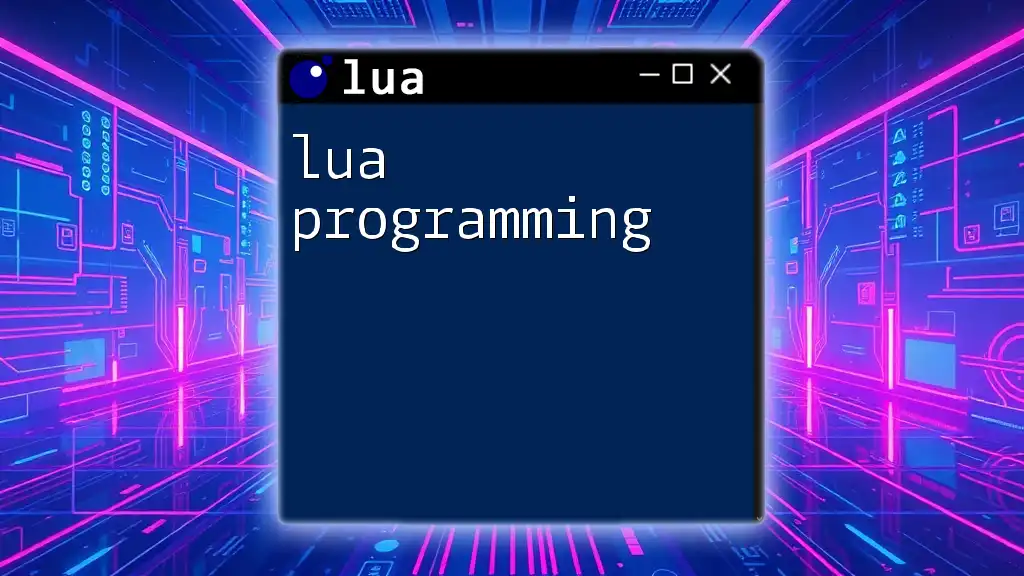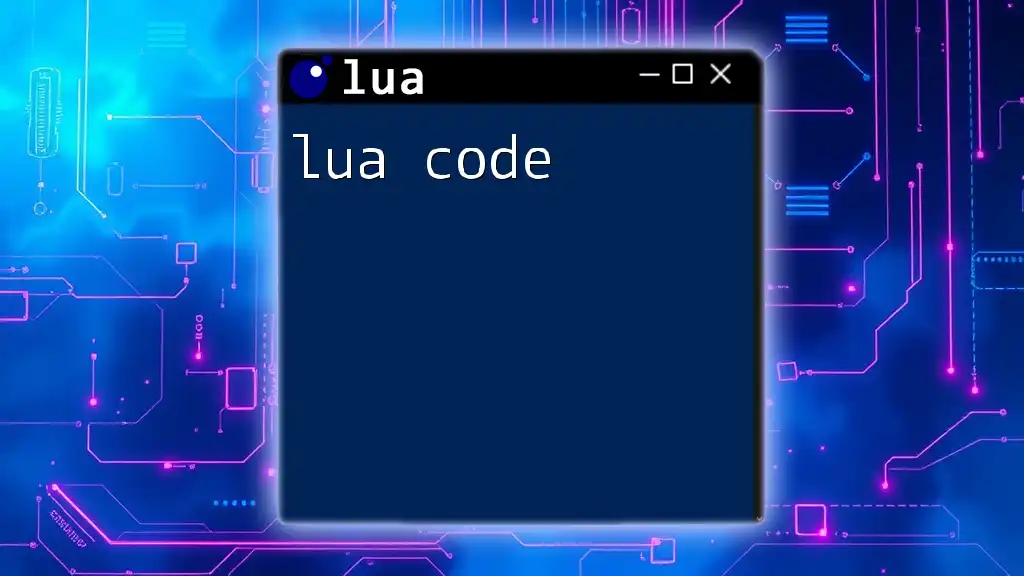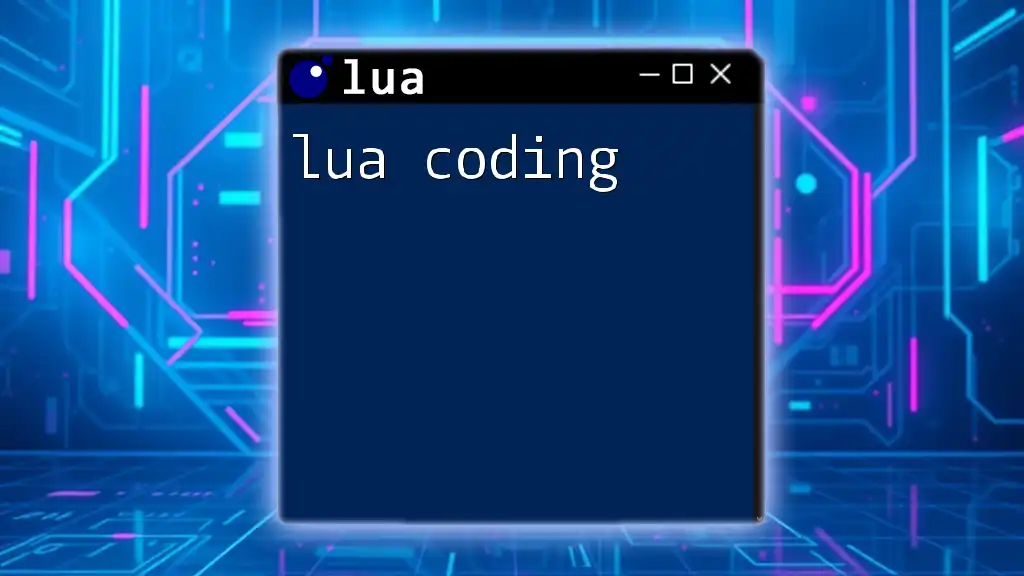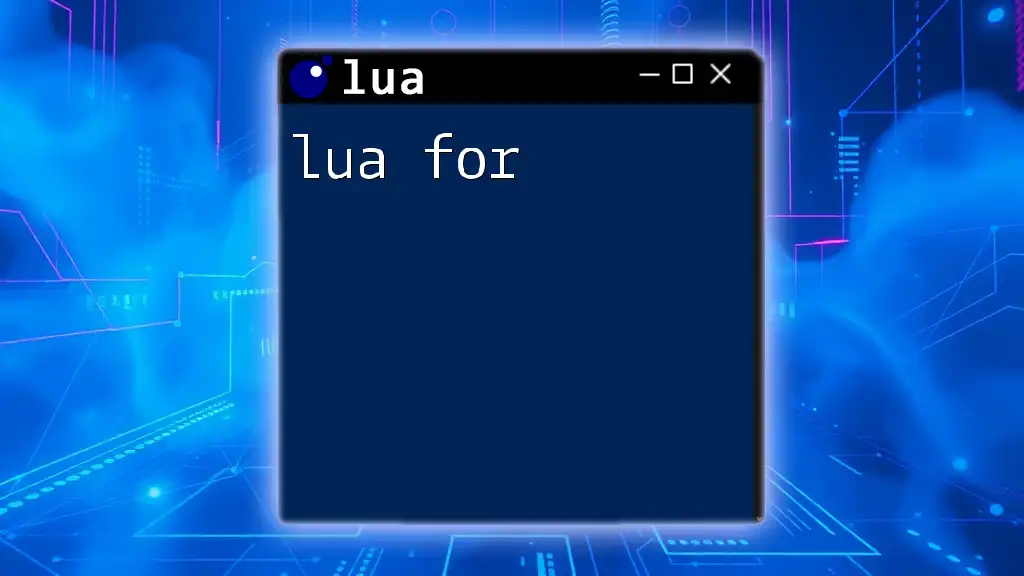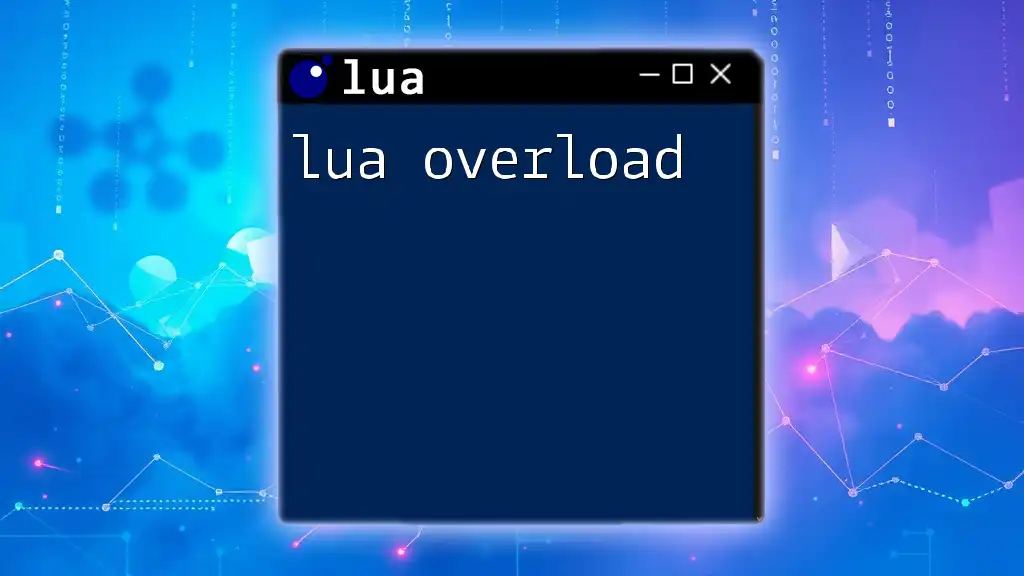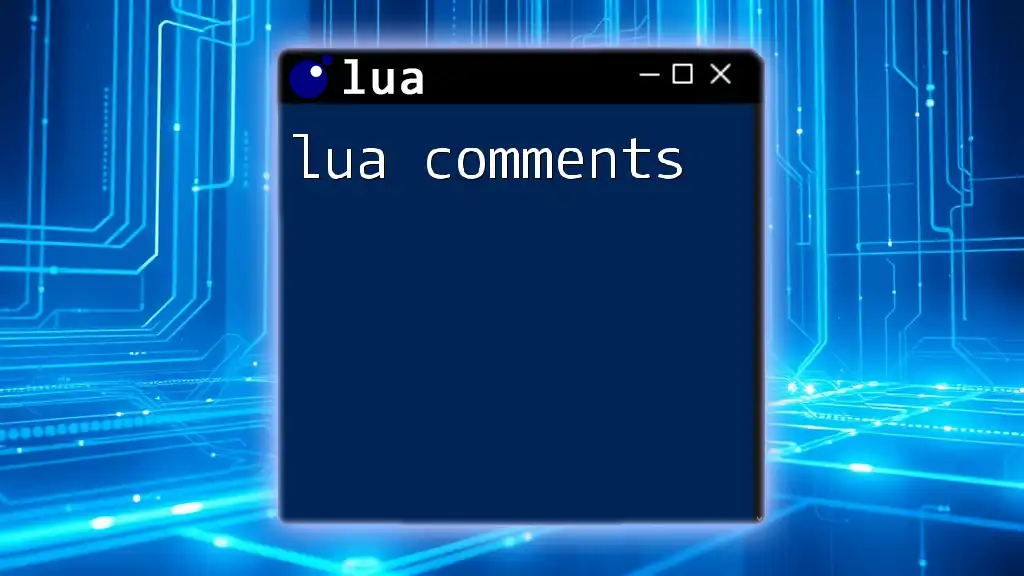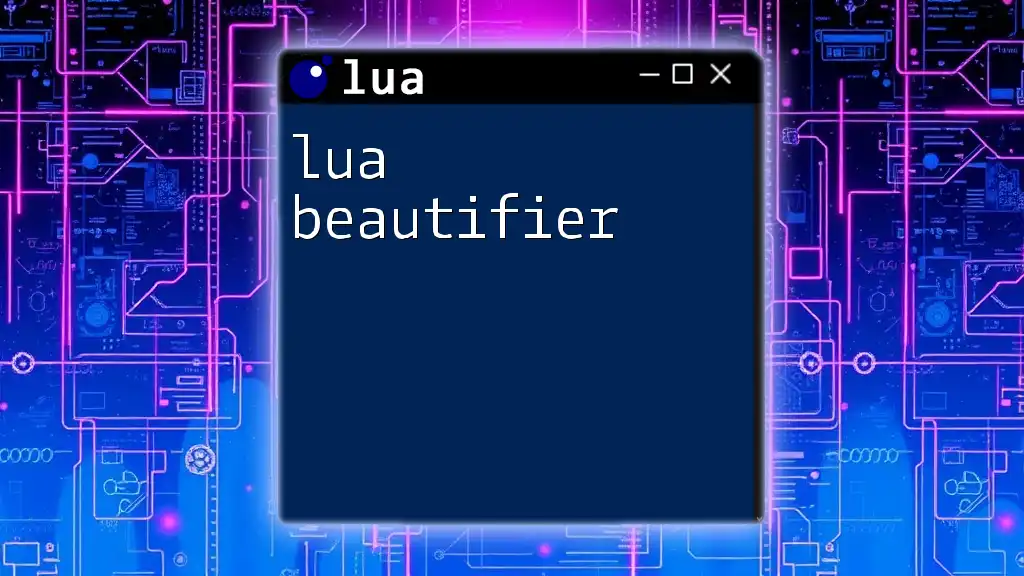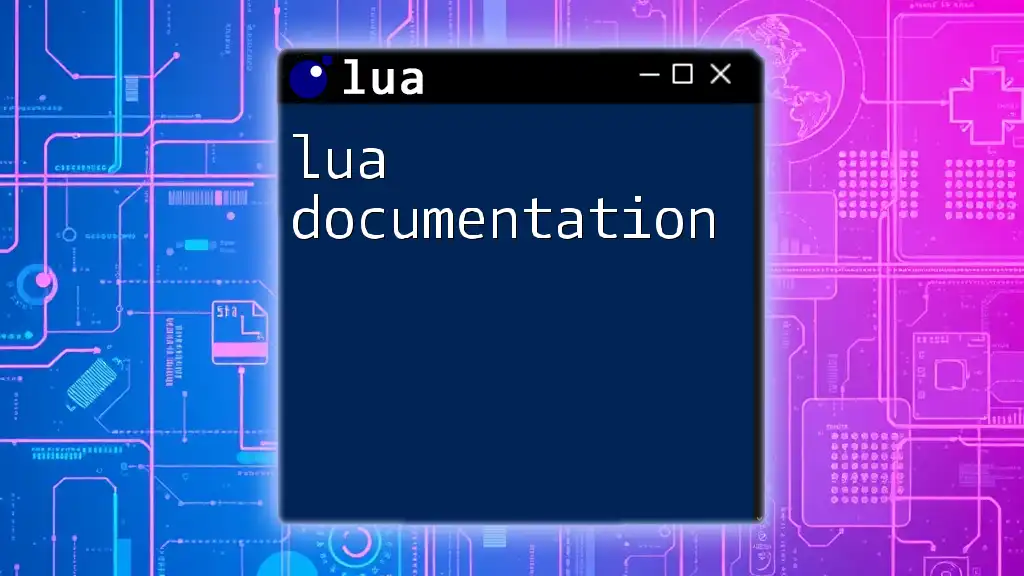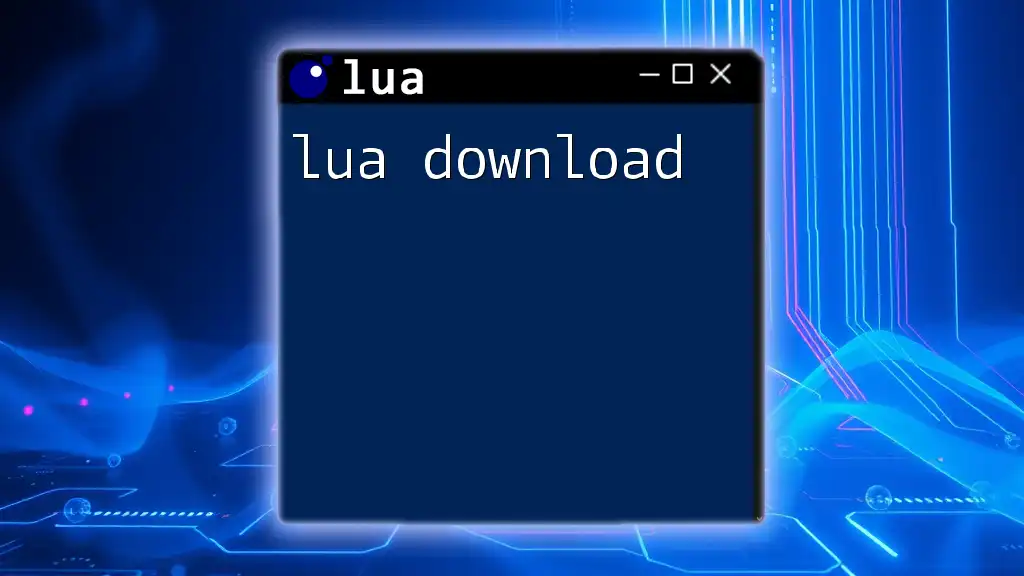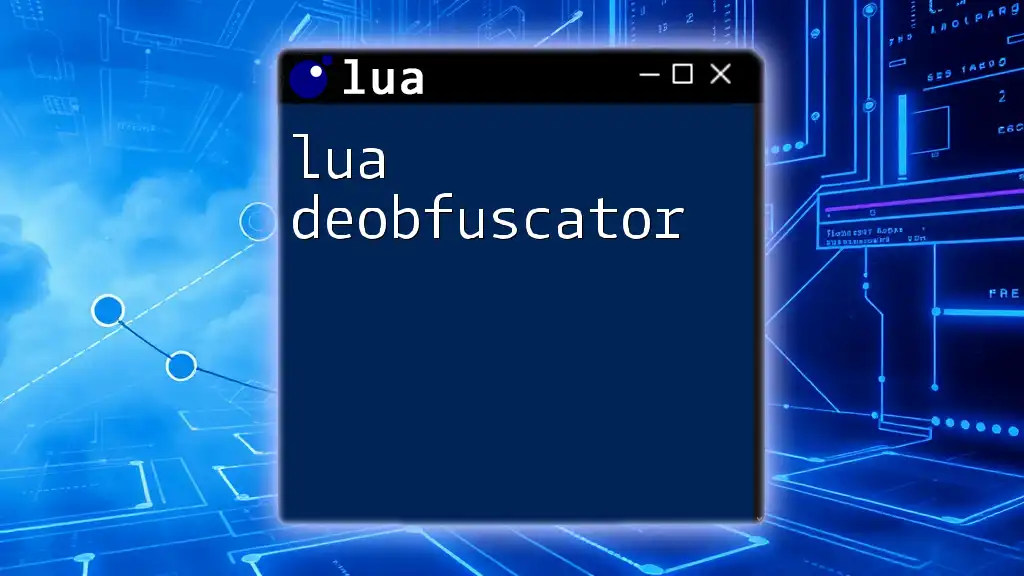A Lua book serves as a comprehensive guide to mastering the Lua programming language, offering clear examples and practical exercises to enhance coding skills.
Here’s a simple code snippet demonstrating a basic "Hello, World!" script in Lua:
print("Hello, World!")
Types of Lua Books
Beginner's Guides
For those just stepping into the world of programming, beginner's guides to Lua are invaluable. These books are designed to provide foundational knowledge, combining clear explanations with practical, hands-on examples. A good beginner's Lua book typically covers essential topics such as:
- Basic Syntax: Understanding variables, data types, and control structures.
- Simple Functions: Learning how to create and call functions in Lua.
For example, a basic Lua function might look like this:
-- Example of a simple Lua function
function add(a, b)
return a + b
end
print(add(2, 3)) -- Output: 5
Recommended Titles
When looking for effective beginner's guides, consider titles such as "Programming in Lua" by Roberto Ierusalimschy, which is highly regarded for its straightforward approach and engaging examples.
Intermediate and Advanced Guides
Once you’ve grasped the basics, intermediate and advanced guides can help you deepen your understanding of Lua. These books may explore topics like performance tuning, metatables, and complex data structures.
A good intermediate guide should provide insights into:
- Optimization Techniques: Learning how to write efficient code.
- Advanced Lua Concepts: Understanding how to use metatables for creating custom behaviors.
For instance, here’s how you can use metatables to manipulate object-like behavior:
-- Creating a simple object using a metatable
local circle = {}
circle.__index = circle
function circle:new(radius)
local obj = setmetatable({}, self)
obj.radius = radius
return obj
end
function circle:area()
return math.pi * self.radius^2
end
local myCircle = circle:new(5)
print(myCircle:area()) -- Output: 78.53981633974483
Recommended Titles
Books like "Lua Quick Start Guide" are perfect for those who want to scale their knowledge quickly while still diving deep into advanced topics.
Reference Materials
Reference materials are critical for any developer who wants a quick guide on Lua commands, syntax, and best practices. These books serve as a brief yet comprehensive resource that you can consult when you're coding.
To enhance your learning journey, consider creating your own quick reference by compiling commands you frequently use. This not only solidifies your understanding but also serves as a personalized guide.
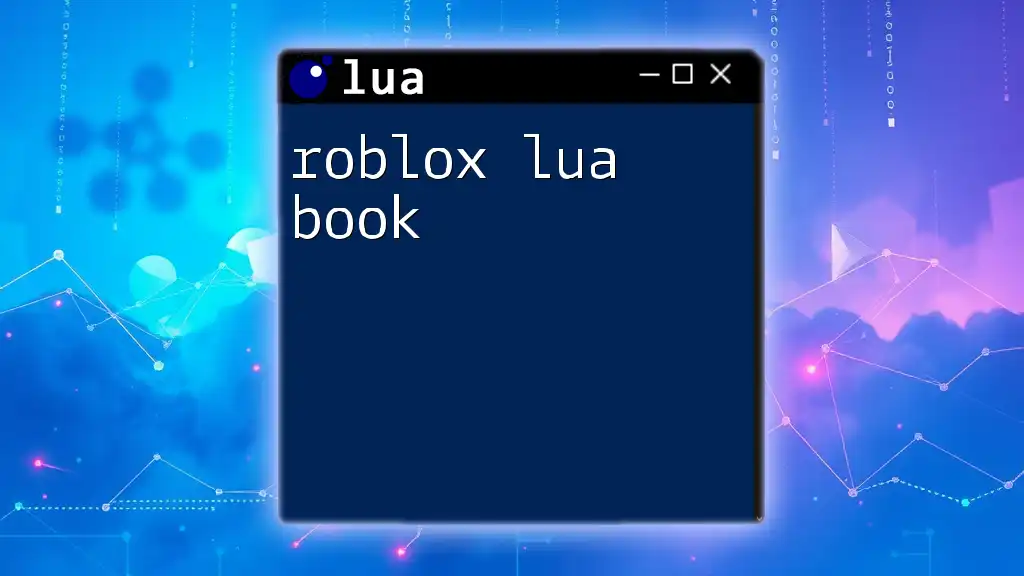
Components of a Good Lua Book
Clear Structure
A well-structured Lua book should offer a logical flow that guides the reader step-by-step. A clear organization can make a significant difference in how effectively you absorb the material. Look for books with:
- Concise Headings and Subheadings: Easy navigation through topics.
- Detailed Index: Swift access to key concepts and terminology.
Practical Examples
A hallmark of effective learning is the presence of practical examples. The importance of coding examples lies in their ability to bridge theory and practice. Books that include real-world applications help solidify your understanding of Lua commands.
For instance, consider this simple program that demonstrates loops in Lua:
-- Using a loop to print numbers from 1 to 5
for i = 1, 5 do
print(i)
end
User Engagement
User engagement is key to an enjoyable learning experience. Books that encourage interaction through exercises and projects ensure that you’re not just passively consuming information. Engaging with the material actively enhances retention and builds confidence in your coding skills.
Consider books that offer:
- Exercises at Chapter Ends: To reinforce learning through practice.
- Project Ideas: Real-life projects that inspire creativity and application of the concepts learned.
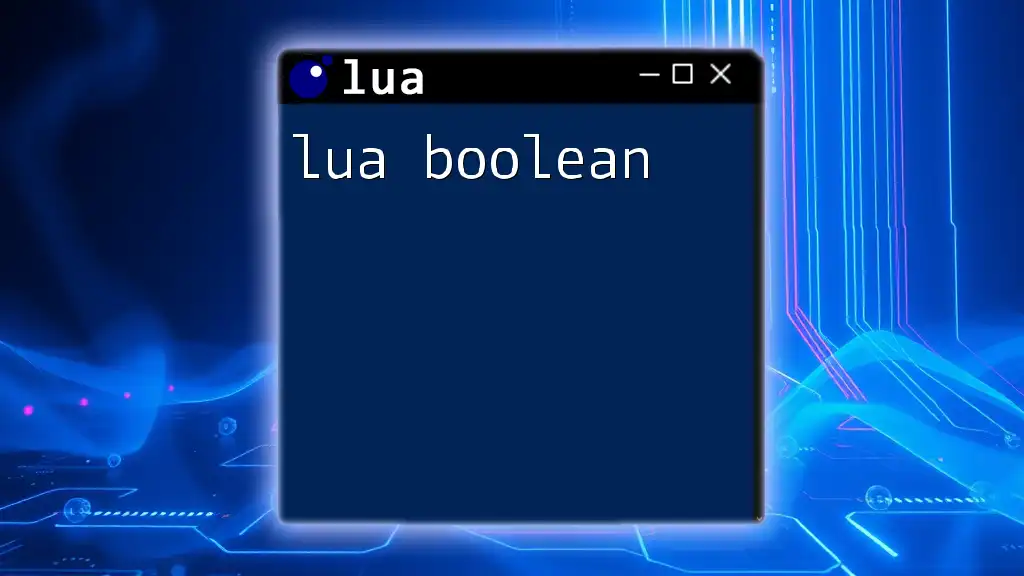
Finding the Right Lua Book for You
Assessing Your Skill Level
Before diving into your Lua journey, it's essential to assess your skill level genuinely. Understanding whether you're a beginner, an intermediate learner, or an advanced user will help you select the right book. Key indicators include:
- Previous Programming Experience: Familiarity with any programming language can simplify your learning curve.
- Comfort with Basic Concepts: If terms like loops, functions, and variables are familiar, you might be ready for a more advanced guide.
Recommendations from the Community
The Lua community can be an excellent resource for finding book recommendations. Engaging in online forums, social media groups, and developer networks can provide insights on the best Lua literature available. Checking author credentials is crucial; seasoned authors tend to provide more reliable and valuable content.
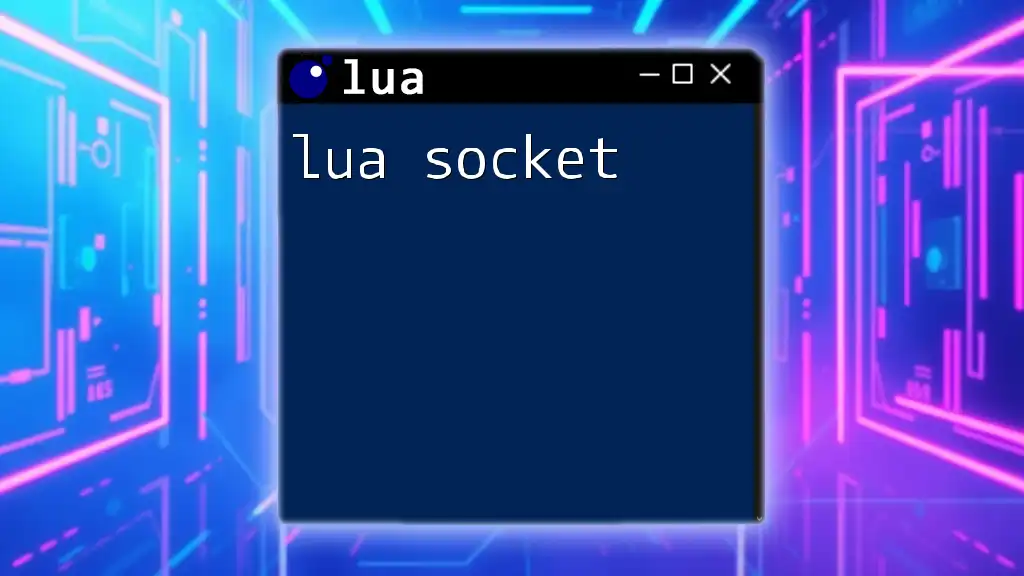
The Role of Online Resources vs. Books
In today's digital age, it’s essential to weigh the benefits of traditional print versus online resources. While lua books offer structured content, online resources such as tutorials, forums, and coding platforms provide up-to-date information and community support.
Utilizing a mix of both can help enhance your learning experience. Books can provide depth and structure, while online resources offer responsiveness to emerging trends and immediate problem-solving avenues.
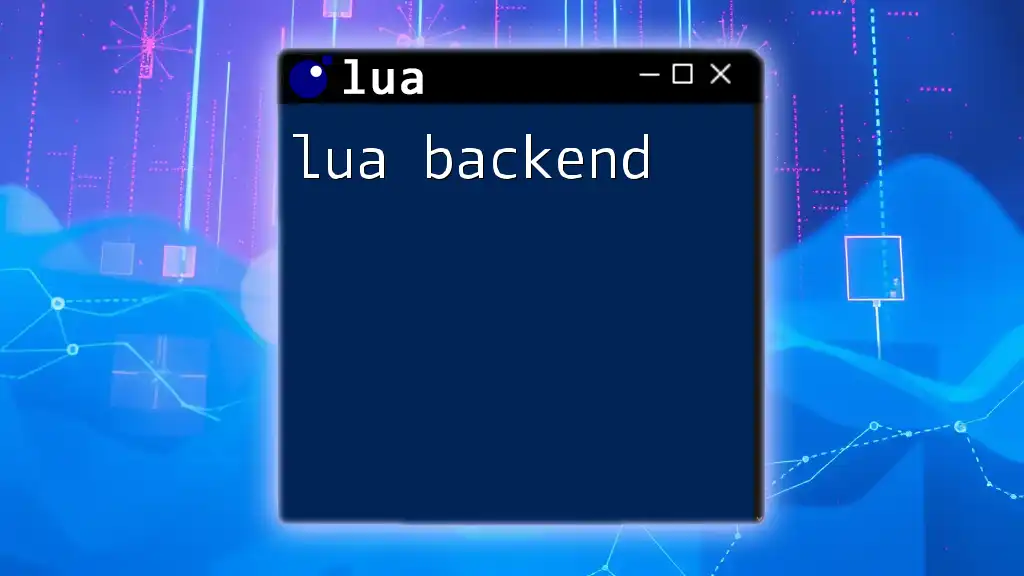
Conclusion
In summary, investing time in studying an excellent lua book can significantly enhance your programming skills and understanding of this powerful language. By exploring various types of books, focusing on well-structured content, and engaging with practical examples, you're setting yourself up for success in your Lua learning journey.
Additional Resources
Don’t forget to explore online Lua communities where you can seek help, mentorship, and additional resources. As you embark on this journey, consider sharing your favorite Lua books or insights with others. Engage in discussions, webinars, or workshops to continue expanding your knowledge and skill set. Your commitment to learning is the key to becoming proficient in Lua!

